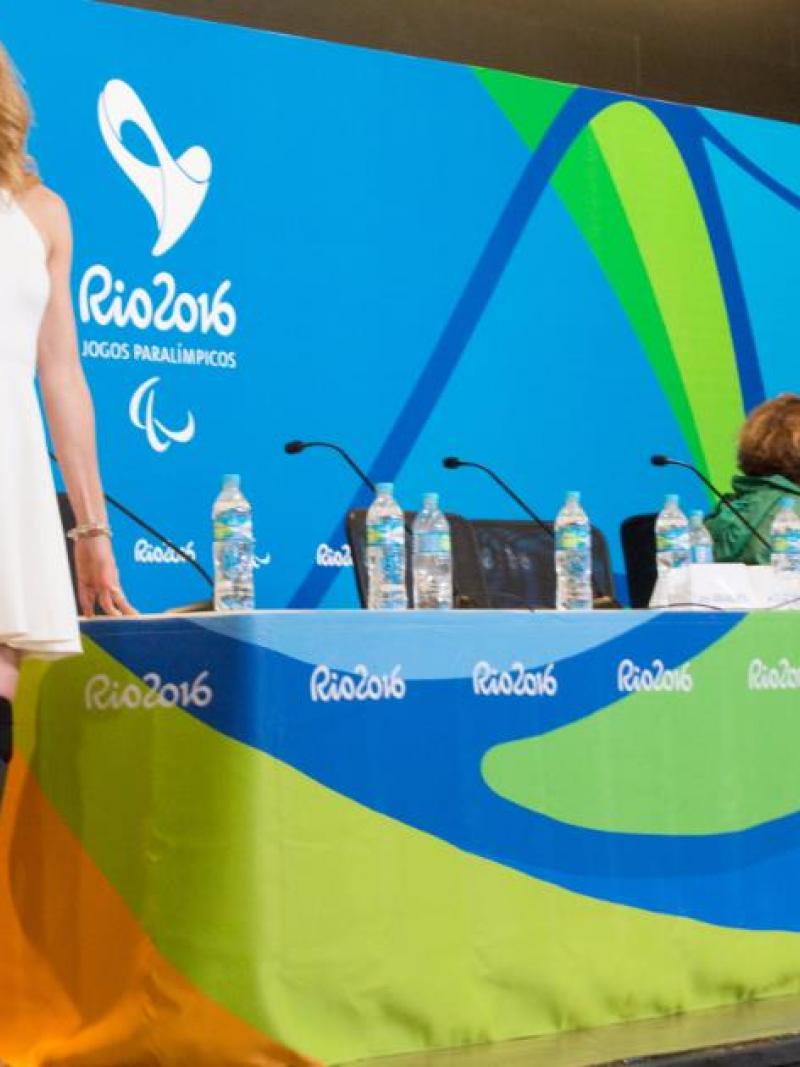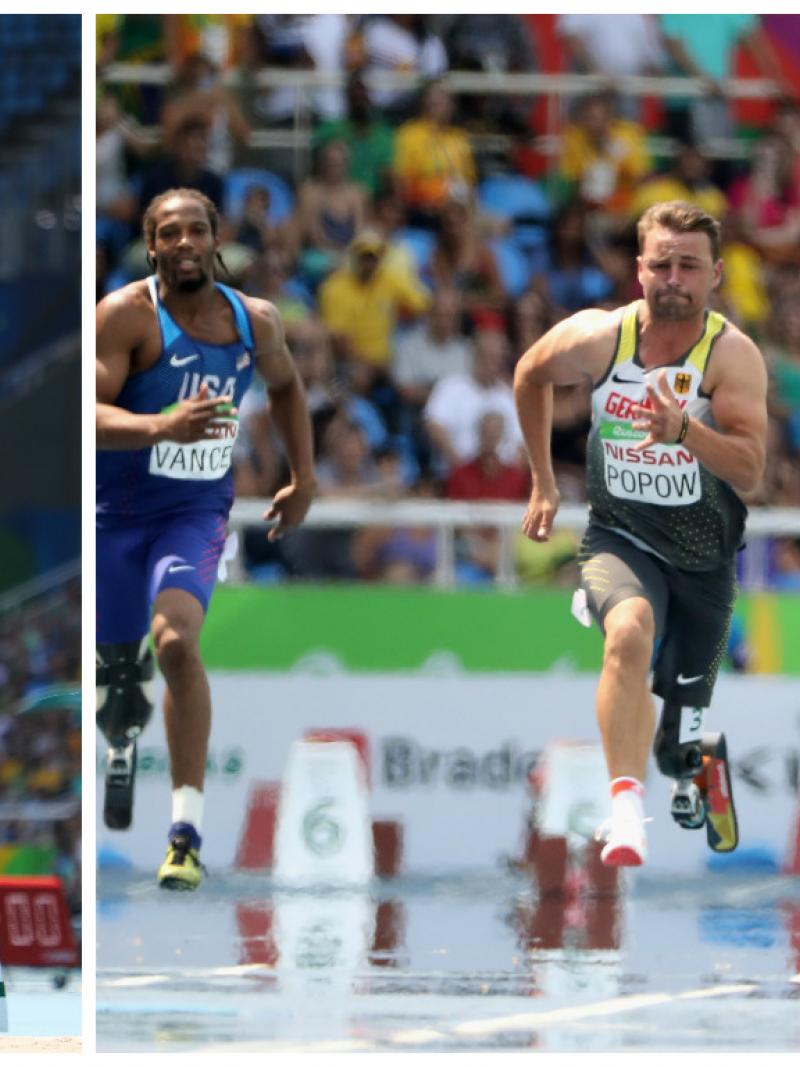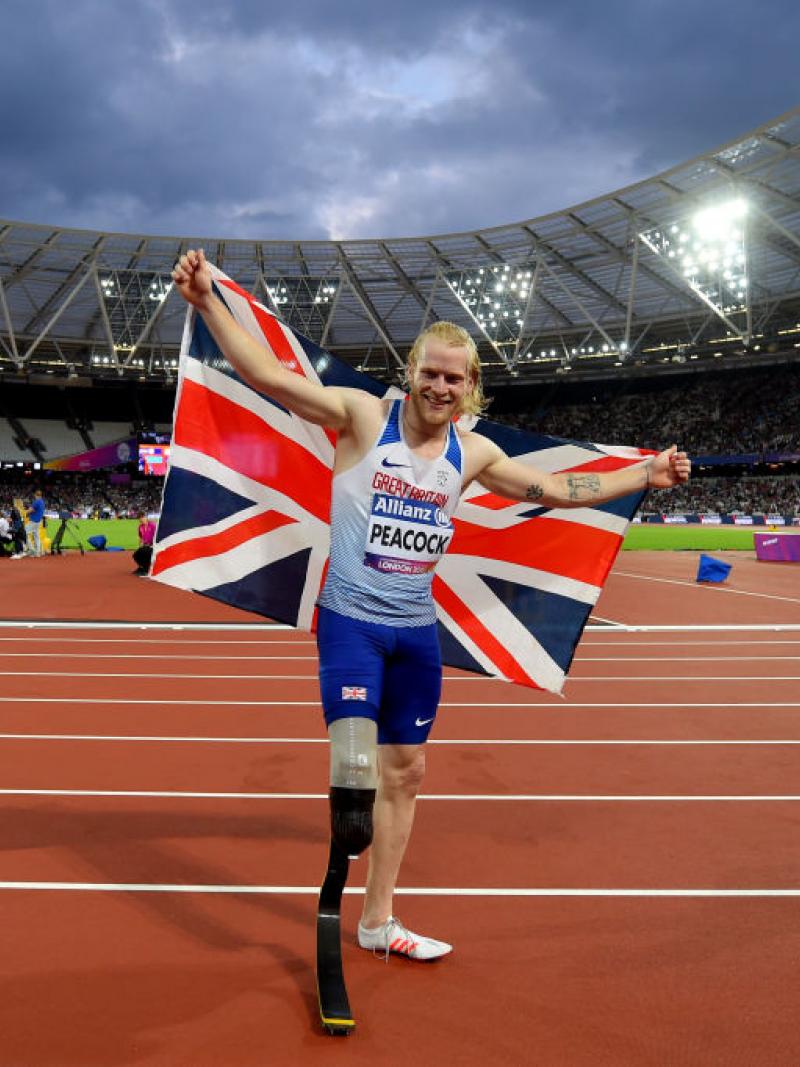Dancing tips for Peacock
Previous Paralympian contestants share Peacock advice as he stars in British TV dance show 22 Sep 2017“So my advice to Jonnie would be to speak less and listen more. First of all because she is the teacher and second because they are on a television show. It’s no good to say ‘I know, I can, for me it’s easy.’ Don’t think big"
British Paralympic and world champion Jonnie Peacock is set to star on British television screens on Saturday (23 September) as the first ever disabled contestant to take part in BBC Television’s hugely popular “Strictly Come Dancing” show.
Peacock, who won 100m T44 gold at July’s World Championships to add to the Paralympic sprint titles he won in 2012 and 2016, is one of 15 celebrities who have been paired up with a professional partner for the contest which will be broadcast live each weekend for the next three months.
But while dancing the tango and the quickstep may be new to Peacock, he is not the first Para athlete to take to the dancefloor on national television.
Italian T43 sprinter Giusy Versace won her country’s version of the show “Dancing with the Stars” back in 2014. Germany’s Heinrich Popow, Australian Kelly Cartwright and the USA’s Amy Purdy have all taken part in their national equivalent.
For Versace, whose family is known worldwide for their fashion empire of the same name, taking part in the show in Italy was a life-changing experience.
“I was the first disabled woman in Italy to do this kind of show,” explains Versace. “I remember everything because it was such a big experience for me. It marked me forever and I suppose that kind of experience will mark everybody.
“It was important for me to do a good performance each week - for me, for my family and for people who look at me – and above all for disabled people. I felt the responsibility. Now everything has changed.
“People look at me and say ‘Oh, you won Dancing With the Stars! Please can I have a picture?’ or ‘Oh wow, my daughter loves you.’ Five, six, seven years ago people said ‘Oh poor Giusy, she lost her legs.’ Something has changed in people’s minds, so I’m happy for that.”
Tips from Versace, Popow
As for the advice she would give Peacock, the Italian believes his sporting background will help – but the relationship he has with his dance partner will be crucial.
“Dance is a kind of sport – it is full of energy and life. It will not be easy - I was a dancer when I was young, I always liked it, so I was a little prepared. So maybe Jonnie is not so prepared – it will depend if he is okay with the rhythm of the music.
“Above all it depends on the teacher. My partner Raimondo was super; he completely came into my world. He taught me how to move the feet, how to feel the rhythm and move my arms but he never forgot that I had two artificial legs.
“So my advice to Jonnie would be to speak less and listen more. First of all because she is the teacher and second because they are on a television show. It’s no good to say ‘I know, I can, for me it’s easy.’ Don’t think big.”
Paralympic long jump T42 champion Popow, who took part in the German television show “Let’s Dance” earlier this year, believes that Peacock - who admits that his dancing experience is limited to performing ‘the worm’ at friends’ parties – should focus on his emotions and not worry too much about technique.
“Jonnie just needs to know that this is a completely new experience for him and he just needs to be like he is – bring the passion and inspiration of our sport in to each of the dances that he is doing - then people will love him,” says Popow.
“He doesn’t need to worry about the technique like ankle work or the position of movement. If his emotions are bigger than the technique, people will love it.”
Popow admits that while dancing was not physically demanding for him, learning new routines each week was mentally exhausting:
“Physically it wasn’t that hard; psychologically it was horrible because you train for one week, then you dance, and after the live show you have to forget everything you learned and start again. Every week you feel like a hamster in a wheel.
“On the other hand, all the progress you make after the first, second or third show - it makes you realise you are doing something you never expected to do. Especially as an amputee, you think you can’t dance. After training with a professional dancing partner, he will completely think differently about his disability.”
Versace agrees: “The problem is not the hard work because if you are an athlete you are used to training every day at the track or in the gym. The problem is the different styles of dance – Cha-cha, Jive, Tango…there are many.”
Life-changing experience
Still, Versace strongly believes that the show not only changed her life, it also changed the public perception of Para athletes and individuals with disabilities.
In 2013 she wrote a book ‘Con la testa e con il cuore si va ovunque’ (With Head and Heart You Can Go Everywhere) detailing her life after the car accident in 2005 which resulted in the loss of both her legs. After appearing on Dancing With the Stars, the book was adapted for theatre; Versace now tours Italy giving talks. She also still dances on stage with Raimondo.
“Everything has changed,” she explains. “Before Dancing With the Stars I couldn’t have imagined doing something like that. I didn’t believe in myself; I didn’t think it would be possible, but after the show I started to look at myself in the mirror and think that maybe, if I really want, I can do it.
“Now people with disabilities are on television much more than before. I was in the 2014 edition; there have been others with disabilities after me. Oney Tapia, who is blind, took part last year and he also won.”
Popow believes perceptions changed in Germany too.
“In the beginning people were like, ‘Should we see this?’ I even got some people on social media saying ‘Please cover up your prosthetic we don’t want to see it, that’s not how we see dancing,’” explains Popow.
“Then when I came out with my emotions and the reason why I’m dancing, people understood that there is no rule that says you have to be like this or like that.
“Jonnie will change people’s view on people with a disability. He is a good person to do it. He has lots of chances to win.”

 Facebook
Facebook
 Instagram
Instagram
 Twitter
Twitter
 Youtube
Youtube




